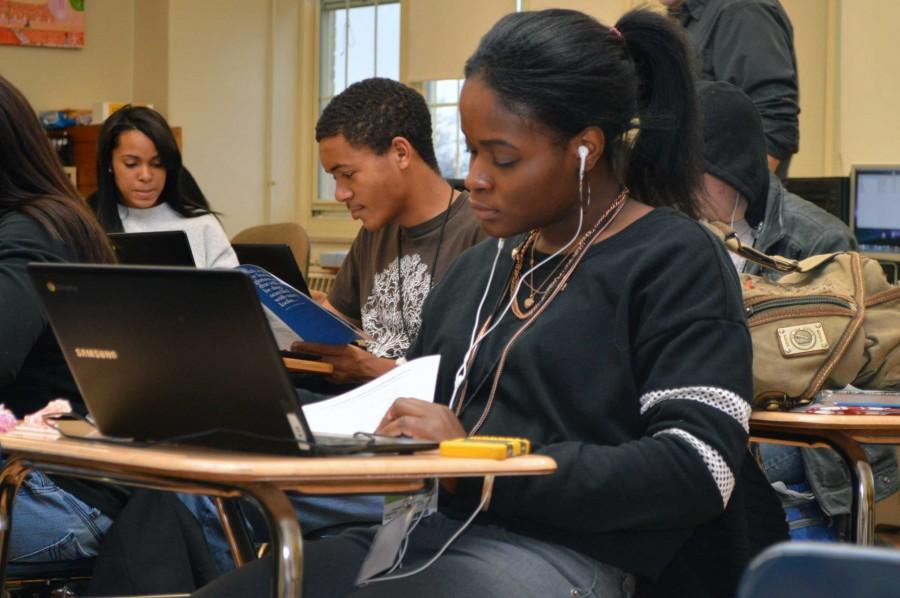In 1913, Thomas Edison boldly predicted the future of education, saying, “Books will soon be obsolete in public schools. Scholars will be instructed through the eye. Our school system will be completely changed inside of ten years.”
Although a century later paper still dominates the classroom, there still may be truth behind Edison’s words. High schools across the country are beginning to view phones and computers as valuable tools for learning and communicating. Because of this, some students view U. City’s “unplugged” campus as regressive.
“As technology advances, more technology will be needed for work, for living,” said Derrick Freeman, senior. “If you don’t teach technology, how do you expect people to work with technology past high school?”
Seniors destined for college share concerns that they will be caught off guard by how technologically advanced universities have become in recent years and won’t be able to keep up.
“If you don’t use technology during high school, you’re not going to be adequately prepared to use it in college,” said Freeman.
Fellow senior Malik Johnson agrees.
“U. City seems to be going back in time instead of moving forward,” said Johnson. “I should be able to use my laptop and phone to take notes, check grades, and communicate with teachers like I’ll be doing this time next year.”
Underclassmen find that being barred from phones, tablets and computers during school hours is confusing considering their lives outside of school revolve around technology.
“It’s weird to walk into school and not be able to have our phones out to Google something or text,” said Tamiyah Churchman, freshman. It’s weird because we’re so used to it. My phone is my baby. It’s like my child. When I lose it, I cry. We’re teens, we like electronics!”
Progressive schools, many of which are on the West Coast, have made efforts to “meet kids where they live,” said Michelle Spencer, principal of New Tech, a technologically advanced California High School. Where the students live, she says, is online. Lance Taylor, freshman, agrees.
“I think we should utilize technology as much as possible,” said Taylor. “Our generation lives in technology. Back when they used to use pencil and paper, it made sense to use those things in school. Nowadays we use phones and computers.”
Mr. Stuart, English teacher, actively encourages his students to do research, write papers, and submit daily work on Google Chromebooks. Although he believes that their work quality will remain the same regardless of medium, he wants to prepare them for what they will inevitably face after high school.
“We’re encouraging students to live in a double standard,” said Stuart. “We’re not facing the fact that our students can’t keep their noses out of their phones. There is no such thing as an ‘unplugged’ public high school.”
Others argue that the disconnect between home life and school life is a positive thing.
“In general, most schools by now have computers in every classroom. Having a phone in your hand—which is essentially a mini computer—is redundant,” said senior Rebekah Lyons. “School and home should be separate. You have books [in school] and a lot of other resources.”
Regardless, it is apparent that the future of technology in schools is bright. Perhaps in just a few years U. City classrooms will be taught by robot teachers and textbooks will be a thing of the past.
“The future of education is in technology because the future is in technology,” said Stuart. “So, if education is not about technology, then it is not about the future.”
































